As an Amazon Associate I earn from qualifying purchases.
When it’s time to care for your dry or irritated skin, making sure that it gets the hydration and protection it needs is essential. Are you a preferential person looking for comparison? Then it’s probably that you have stumbled upon two of the popular skincare products: Dermaphor vs Aquaphor. These products may appear to be the same, but they are each very unique products tailored for different skin issues.
This post delves into the Dermaphor vs Aquaphor battle to make you learn about their similarities and differences and let you decide which the best pick for your skin could be. Whether you’re searching for a remedy for chapped lips, eczema, or wound care, this guide has you covered.
RELATED: Aquaphor vs Cetaphil
What is Dermaphor?
One of the newest products designed to heal and moisturize is Dermaphor. I began using it for dry spots of skin, and I realized how quickly it kicked in. The formula is packed with the kinds of ingredients that lock in moisture without feeling greasy. It’s creamy without feeling too heavy so that you can layer it on throughout the day.
What is Aquaphor?
Aquaphors have been around forever, and many people rely on them for treating dry skin. I’ve had it for years, especially in the winter when my skin gets scaly. Its formulation includes petrolatum, which is what forms the barrier to seal moisture in. For dry hands, cracked heels and chapped lips, I find that it does wonders.
Key Differences Between Dermaphor and Aquaphor
Ingredients Comparison
One of the most significant differences between Dermaphor and Aquaphor lies in their ingredients.
Dermaphor’s Ingredients:
Its primary ingredient is petrolatum (petroleum jelly), with lanolin and mineral oil as emollients. These elements form a moisture barrier to keep the skin hydrated and relieve irritations.
Aquaphor’s Ingredients:
Aquaphor also contains petrolatum as a base ingredient, but it also incorporates other ingredients, including glycerin, panthenol and bisabolol. These added ingredients will help moisturize, heal and reduce inflammation.
Both are scent-free, which I like because I have sensitive skin. But if you have a sensitivity to lanolin, then you may want to try Aquaphor because it is a derivative of the lanolin but milder.
Texture and Feel
- Dermaphor has a little thicker, greasier feel to it. While this can be perfect for super-dry or cracked skin, it might feel too heavy for everyday use.
- Aquaphor, meanwhile, is a little bit lighter and a little bit easier to spread. Its non-greasy feel is appealing to a lot of users who want to apply moisturizer over significant parts of their body.
Primary Uses
While both products are known for their multitasking abilities, they excel in slightly different categories.
- Dermaphor May Be Better For:
- Healing cracked heels or hands
- Providing an overnight mask for deep hydration
- Use as a barrier against environmental irritants like cold wind
- Aquaphor Excels At:
- Post-tattoo healing
- Treating minor burns or abrasions
- Serving as a lip balm, cuticle moisturizer, or makeup primer
Dermaphor vs Aquaphor Comparison In 2025
| Image | Product | Detail | Price |
|---|---|---|---|
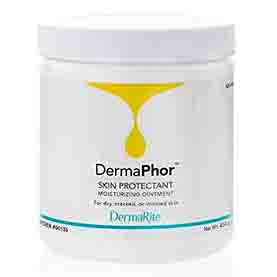 | DermaPhor Moisturizing Ointment |
| Price |
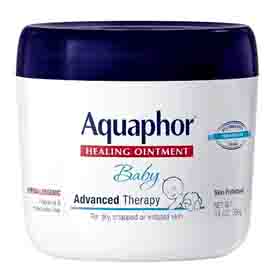 | Aquaphor Baby Healing Ointment |
| Price |
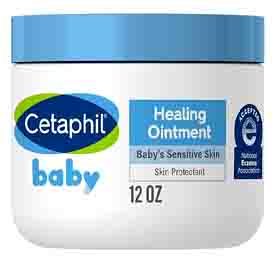 | Cetaphil Baby Healing Ointment |
| Price |
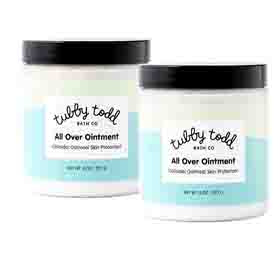 | Tubby Todd All Over Ointment for Babies |
| Price |
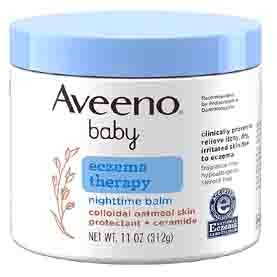 | Aveeno Baby Eczema Therapy |
| Price |
DermaPhor™ Moisturizing Ointment Review
If you suffer from dry, rough or cracked skin, DermaPhor™ Moisturizing Ointment might just be the answer. This skin protectant has been used as a household staple for years to hydrate, heal, and protect skin.
Whether your skin is feeling the dulling effect of harsh winter weather or the burning sting of a hot summer day, always have DERMAPHOR on hand to help heal.
Product Specifications

Key Features
- Moisturizing & Hydrating: Rich in petrolatum, it creates a protective barrier that locks moisture into the skin.
- Soothes Dry, Cracked Skin: Perfect for areas that suffer from windburn, dryness, or chapped skin.
- Heals Minor Cuts & Scrapes: Speeds up healing by providing a shield to the affected area.
- Multipurpose: Ideal for everyday use, hospital care, and home patient care.
- Gentle & Safe: Suitable for adults with dry skin, especially in colder climates or after exposure to harsh elements.
What This Ointment is Best For
DermaPhor™ Moisturizing Ointment excels at addressing several skin concerns:
- Dry Cracked Skin: Soothe and soften dry, cold-weather patches with intensive melt-in-your-skin ointment that locks in moisture to restore comfort.
- Healing Small Wounds & Burns: It assists in speeding up the healing process of small wounds and burns by creating a protective barrier to guard against pathogens.
- Chapped Lips: It can be applied to dry, broken lips as an overnight treatment to wake to a moist, soft smile in the morning.
- After-Sun Care: Helps to soothe and hydrate skin after sun exposure.
- Daily Skincare: It’s also a great way for you to maintain soft and healthy skin when you encounter conditions like healthcare (with constant hand-washing) or outdoor work.
Pros
- Excellent for Extremely Dry, Cracked Skin
- Creates a Strong Protective Barrier
- Works Well Overnight For Intensive Hydration
Cons
- Limited availability compared to Aquaphor
Aquaphor Baby Healing Ointment Review
Looking for safe skin care for your baby is key when wanting to take the best care of your baby’s delicate skin. Aquaphor Baby Healing Ointment Advanced Therapy Skin Protectant is a product many new parents swear by because this all-in-one product helps heal skin and serves a variety of purposes.
Whether your tot has a case of diaper rash, a teething rash, or dry chapped skin, this ointment is there for you. But it’s not just for babies — adults can use it too! So, here we go, all the reasons why Every Family Needs Aquaphor Baby Healing Ointment!
Specifications

Key Features
- Multipurpose Skin Care: Perfect for diaper rash, teething, drool rash, and more.
- Hypoallergenic & Safe for Babies: Free of fragrances and preservatives, this ointment is designed with baby’s sensitive skin in mind.
- Rich in Petrolatum: It contains 41% petrolatum, a key ingredient that helps lock in moisture and create a barrier against irritants.
- Soothes and Protects: Ideal for soothing chapped skin and protecting against further irritation or dryness.
- Ideal for the Whole Family: While designed for babies, this ointment is also perfect for adults to use on dry hands, cuticles, cracked heels, and chapped lips.
What is Aquaphor Best For?
This ointment is best known for its ability to heal and protect delicate skin. It’s ideal for:
- Sensitive Skin: With no added fragrances or preservatives, it’s perfect for babies’ sensitive skin.
- Prevention & Relief of Diaper Rash: It’s a trusted option for preventing and treating diaper rash and keeping your baby comfortable.
- Chapped or Dry Skin: Whether it’s caused by weather or skin irritation, Aquaphor provides quick relief and protection.
- Healing from Skin Irritations: This ointment can help soothe and repair skin damaged by drool rashes, chafing, or other irritations.
Pros
- It’s Soft, Doesn’t Bother, and Works Really Well
- Good for Getting Better Cuts
- The Formula is Thick and Rich
- That Doesn’t Smell, is Hypoallergenic, and Has Preservatives
- It’s Great For Winter Skin That is Dry and Cracked
Cons
- It Can Get Messy in The Tub
Which One is Better for a Sensitive Skin?
I have sensitive skin, so I’m always weary about what I put on. Dermaphor has a slightly less harsh formulation and is a good choice for sensitive skin. They make my skin happy, and I’ve never got irritation when using them. Aquaphor, though, can be a little too rich for some, particularly if your skin is acne-prone. If you’re not sure what product to use, try both on a small area first.
How to Use Dermaphor vs Aquaphor
Using Dermaphor is easy. I place it directly on affected areas and rub it into the skin softly. It sinks in fast, which I can appreciate when I’m in a rush. Aquaphor, however, takes a little more time to rub into the skin. I like to apply it overnight, as it’s a bit thicker and can give my hands a greasy feel.
Dermaphor vs Aquaphor for Types of Skin Issues
I tried both, and while they’re both great for dry skin, Dermaphor is better for those smaller skin irritations. For heavily dry or cracked skin like a larger area, Aquaphor works best. I’ve put Aquaphor on cuts and burns, and it’s great for healing. Both are amazing if you have chapped lips, but I like Aquaphor better for this cause.
Side Effects and Considerations
And I have never experienced any side effects from either Dermaphor or Aquaphor. But consider: The petrolatum in Aquaphor can be pore-clogging if applied to the face. With its lighter formula, Dermaphor doesn’t have this problem. And if you’re prone to developing acne, Dermaphor is great on your face, and Aquaphor is just about everywhere else on your body.
Conclusion Dermaphor vs Aquaphor – Which To Choose?
At the end of the day, both Dermaphor and Aquaphor have their pluses. For rapid hydration, Dermaphor is my go-to. It’s absorbed into the skin quickly and works great for little rashes. Aquaphor is perfect for deep hydration and prolonged repairing of the skin. It works great for overnight as well, especially if you have dry patches or skin rips.
FAQs
Dermaphor is lighter and absorbs quickly, while Aquaphor is thicker and more long-lasting.
Aquaphor is better for deep hydration, while Dermaphor works faster for light dryness.
Yes, Dermaphor is gentle enough for the face, especially for sensitive skin.
Aquaphor is excellent for chapped lips and dry skin.
Dermaphor is gentle and suitable for babies, but always do a patch test first.
Amazon and the Amazon logo are trademarks of Amazon.com, Inc, or its affiliates.
Leave a Reply